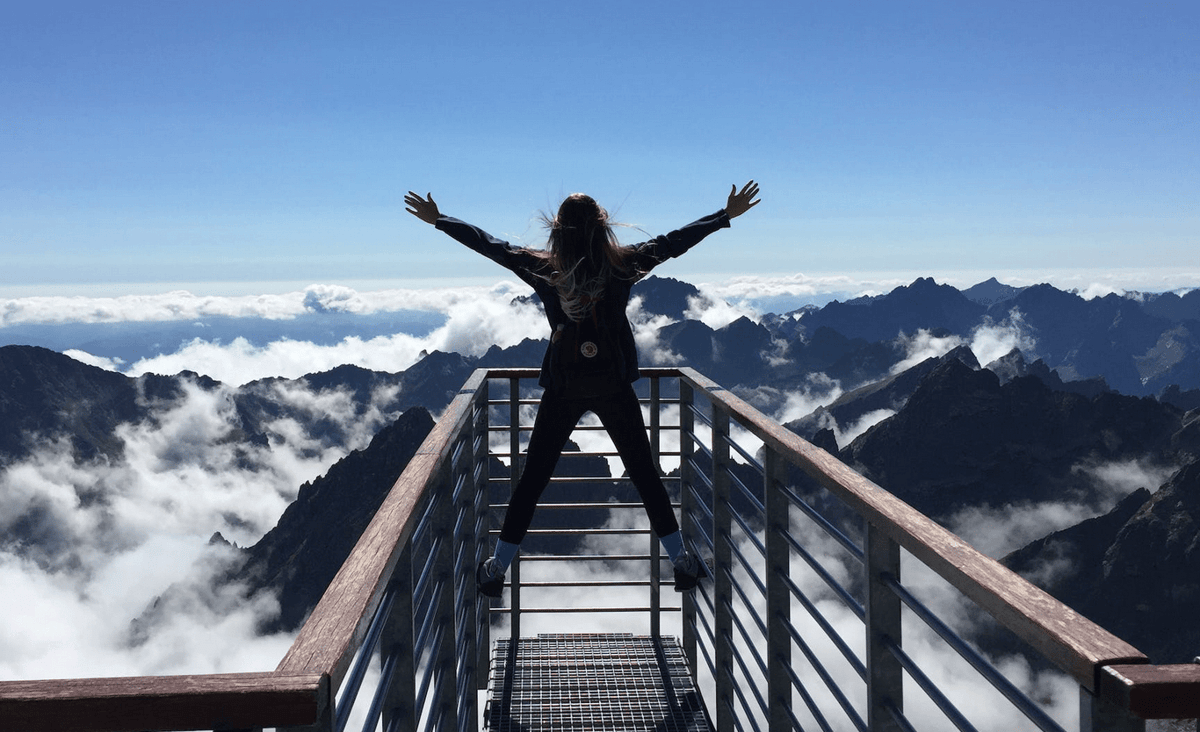When I reflect on difficult decisions I've had to make in the past, I recognise that I was pursuing the 'right choice', one that would either be most logical, beneficial or useful in some way.
I struggled to make decisions and as a naturally inclined leader, that's difficult to accept.
What I have come to realise is that the conflict around decision-making arises within me when the outcome impacts my sense of freedom.
I never knew it, but freedom has always been my highest value (yet so strikingly obvious to many people around me). It is completely non-negotiable for me, with anything or anyone. Take away my possibility to choose or my ability to create and it completely destroys my spirit.
With this awareness, it has become a tool and vital filter in my decision-making and life-living.
And it goes deeper than that.
Following my curisosity, I uncovered that freedom has many shades to it, whether physical, mental, emotional or spiritual and can be coloured and molded to the desires of any individual (like anything perhaps).
In my investigation, I have found three layers of freedom that I constantly check in with when I feel that inner conflict begin to build up, helping me to release that tension, ground and make a more aligned decision for myself.

Freedom From
This is where most of us begin. We feel discomfort, either as a result of someone's behaviour, the environment we're in or another form of limitation that is being imposed.
After a period of toleration, the desire to (literally) move away from the pain comes through, impacting the decisions we make.
One example is feeling boxed in in our job, often experienced by employees in big corporations where their responsibilities and limitations are created by someone or something else. This can commonly cause staff to leave and change company or even career.
This has never happened to me as I've never worked for a corporation but I have experienced it as an entrepreneur in my own business, leading me to discover my own method for creating autonomy in my work.
Essentially, this feeling creates the idea, "When I get somewhere/thing else, then all will be ok.."
Initially, the pain evaporates and we feel great about our decision but this is temporary and will return when we run into conflict with our values down the line.
Freedom To
The second layer of freedom comes from a "positive" emotion, one of excitement. Instead of having a feeling of escaping from a bad situation, we are motivated by a sense of opportunity or possibility for something more or better.
The idea of delight and pleasure fires up our neurons and heart strings and springs us into forward motion, towards this potential.
This can be often be felt when finally going on holiday after many months of years of work.
It could be the idea of a new job, role or company.
It could be a new romantic partner or friend.
While the emotions associated with freedom to are the opposite to freedom from, the underlying unconscious meta data is the same, "When I get there, then all will be ok."
In my life, this was manifested through travelling to different countries in a search for a place to call home, a perfect place where I would eventually be happy. What a journey that was...
We can revel in the release we get once we arrive at our holiday destination, begin our new job or new relationship, but again, the idea of creating freedom somewhere beyond us sets up for future internal conflict.

Being Free
If we are not moving away from or towards (our version of) freedom, how is freedom born?
If we don't need to get away or be somewhere or something else, what is left?
We can be free and develop inner freedom.
What is to be free? It's a way of living that gives you full control of your external freedoms (from work, stress or other pain) while also being internally free by allowing what is, just to be what it is, without resisting it.
Internal freedom is the art of cultivating a detachment from the 'I' and creating objective perspective from your self and existence. Michael A. Singer explores this in his bestseller, "Untethered Soul".
Being and having freedom is a state of being rather than a place to get to or something to achieve.
As my mentor says, "Allow everything and accomodate little" and in being so, we start to create the space for peace to enter and evolve into freedom.
It becomes a sense of knowing and being free, is developed from heightened and objective awareness, supported by love and reaffirmed forever in the present.
As with the other two layers of freedom, will this too find conflict over time. Absolutely and almost immediately. It has probably created conflict in you reading this right now.
There are differences however. With this layer, the initial positive release by feeling free may not arise immediately as in the previous two levels as one stretches and uses this muscle. It's essentially taking a longer-term perspective and solution and integrating it into your life versus seeking an immediate payoff and satisfaction.
Secondly, you have full agency and control to determine your freedom, without external stimulus, providing you the tools, know-how and possibility to always create freedom.
Thirdly, your decision-making effectiveness takes-off as it's more aligned with your truth because you're able to experience the process objectively, and not in the choice.
Finally, while practicing and being well-practiced in this, creates a superpower within you for everything in your life.
As I delve deeper into the realms of decision-making and the profound impact freedom has on my choices, I can't help but ponder the role of societal expectations and cultural influences. The external pressures to conform to established norms and predefined paths can create an internal conflict between personal values and societal expectations. Striking a balance between individual freedom and societal conformity is a perpetual challenge. It prompts reflection on the essence of true autonomy—whether it lies in conforming to societal expectations or forging an uncharted path. The interplay between personal freedom and societal norms adds another layer of complexity to the decision-making process. Navigating this intricate dance requires not only self-awareness but also a keen understanding of the societal forces at play. Ultimately, it underscores the importance of defining one's values and principles while remaining cognizant of the external influences that shape our perceptions of freedom and choice.
Wishing you the absolute very best,
Stefano


